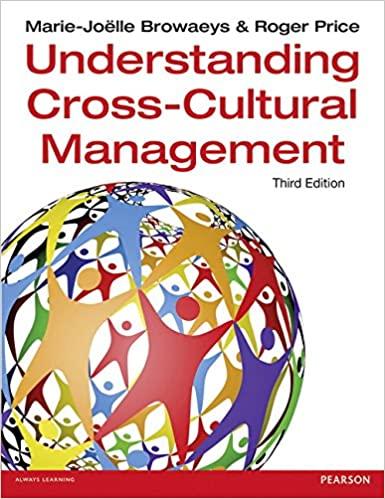The full-page, colour newspaper advertisement looks irresistible top Bollywood stars romancing against the stunning backdrop of
Question:
The full-page, colour newspaper advertisement looks irresistible – top Bollywood stars romancing against the stunning backdrop of Swiss mountains and meadows.
Sponsored by Switzerland Tourism, the city of Lucerne and the Indian arm of Kuoni Travels, the advertisement urges Indians to ‘experience the magic’ themselves, by visiting the locations where the well-known Bollywood films were shot.
On the very next page of the same paper, Cox & Kings, the newly listed Indian travel company, has its own full-page advert promoting tours to a wide range of destinations, including the US, Europe, Egypt, Turkey, Australia and Kenya.
The duelling ads reflect the new competition among countries and global travel companies to catch the fancy of Indian travellers, who are increasingly using their new-found affluence to take overseas family holidays – once the preserve of a privileged few.
‘Indians are tired of seeing Manhattan only in Hindi films’, says Suhel Seth, managing director of Counselage. ‘Today, he can be part of the scene by going there – so he is going. It’s no longer impossible. The average Indian is discovering a world beyond.’
Indian overseas travel still lags far behind the 45m Chinese travelling abroad each year. But the World Tourism Organisation estimates that by 2020, about 50m Indians will be taking foreign holidays each year. It may represent a tiny proportion of India’s population but it is a huge new market for the global travel industry.
Industry professionals say overseas travel is often far better value. ‘It’s cheaper for me to travel abroad’, Mr Sanjeet says. ‘A five-star hotel is cheaper in Macao and Holland than New Delhi and Mumbai. Plus it’s great “show-off ” value. In your peer group, that’s a great status symbol to go out and see what is happening in other parts of the world.’
For all the desire of Indians to see the world, however, travel executives say they can be finicky about some things, especially first-time travellers from India’s less cosmopolitan smaller cities.
‘The most important is the Indian food’, says Kashmira Commissariat, chief operating officer for SOTC, an Indian subsidiary of Kuoni.
‘Wherever they would go, they require that.’ India is among the most protectionist countries in the insurance industry in the fast-growing Asian region, the chairman of Lloyd’s of London said, in a forthright criticism of the country’s regulatory system.
India, which imposes a 26 per cent ownership limit on foreign investors in insurance companies, is reviewing raising this to 49 percent but legislation has become bogged down in parliament. India is ‘the one place I would complain about.
India is a very, very difficult market’, Lord Levene said in an interview on Thursday. ‘It’s one of the few places in the world where I blame regulation [for keeping foreign insurance companies out]’.
Lord Levene, who was in Tokyo to open the Lloyd’s insurance market’s new office there, said he hoped to increase its business in Asia from about 8 percent of total premium income to about 15 per cent over the next decade. ‘It would be nice, in 10 years’ time if we had 15 per cent in Asia’, he said.
However, while Lloyd’s expects moderate growth in Japan, one of its top 10 markets, and China, where it opened an office two years ago, it has failed even to obtain alicence in India.
Lloyd’s opened an office in India several years ago but soon scaled it down after realising that regulatory change was unlikely to come quickly.
Like many other industries, India’s insurance sector is mired in red tape relating to foreignownership restrictions. Overseas companies complain these are onerous, but domestic operators view them as necessary to allow them to get a foothold in their respective industries.
In China, Lloyd’s also faced tough negotiations but after two or three years of difficult talks it was able to obtain a re-insurance licence.
‘In China you need patience, in India you need more patience’, Lord Levene said.
Questions
1. How could business in India be characterised?
2. What differences between other Asian countries mentioned in the mini-case are apparent?
Step by Step Answer:

Understanding Cross Cultural Management
ISBN: 9781292015897
3rd Edition
Authors: Marie Joelle Browaeys, Roger Price





